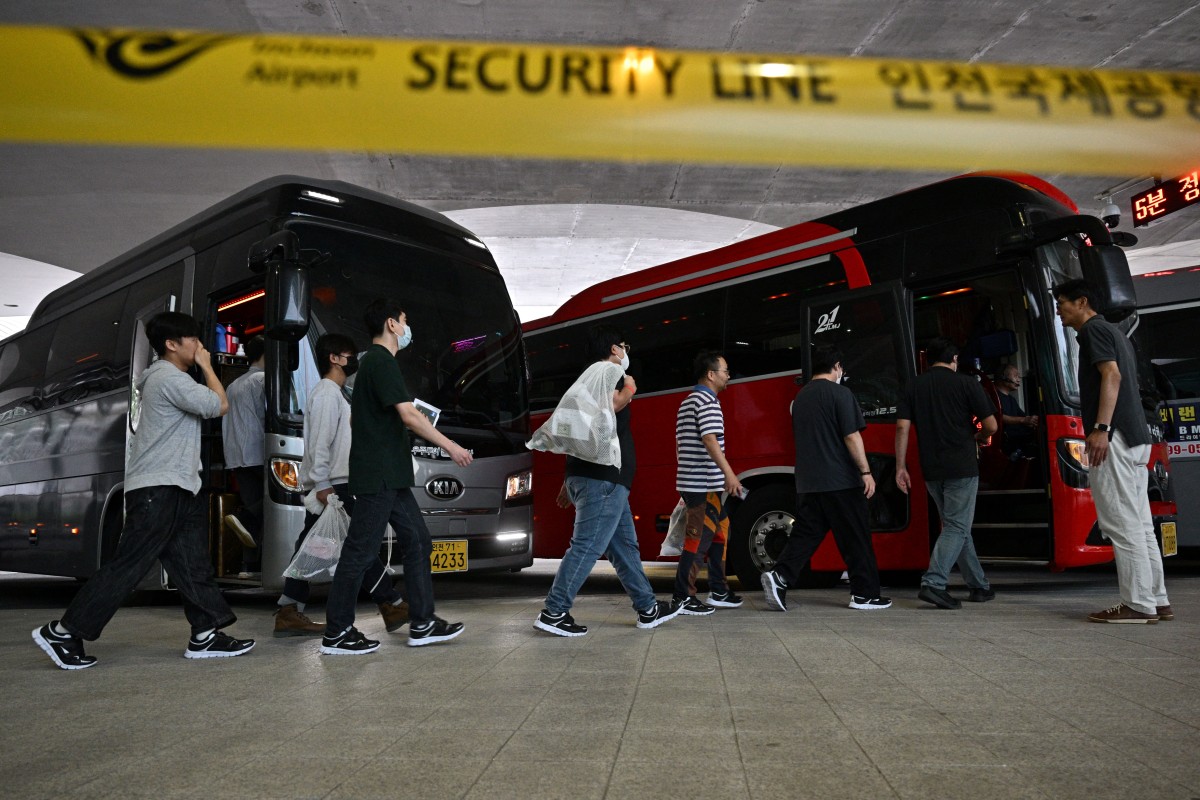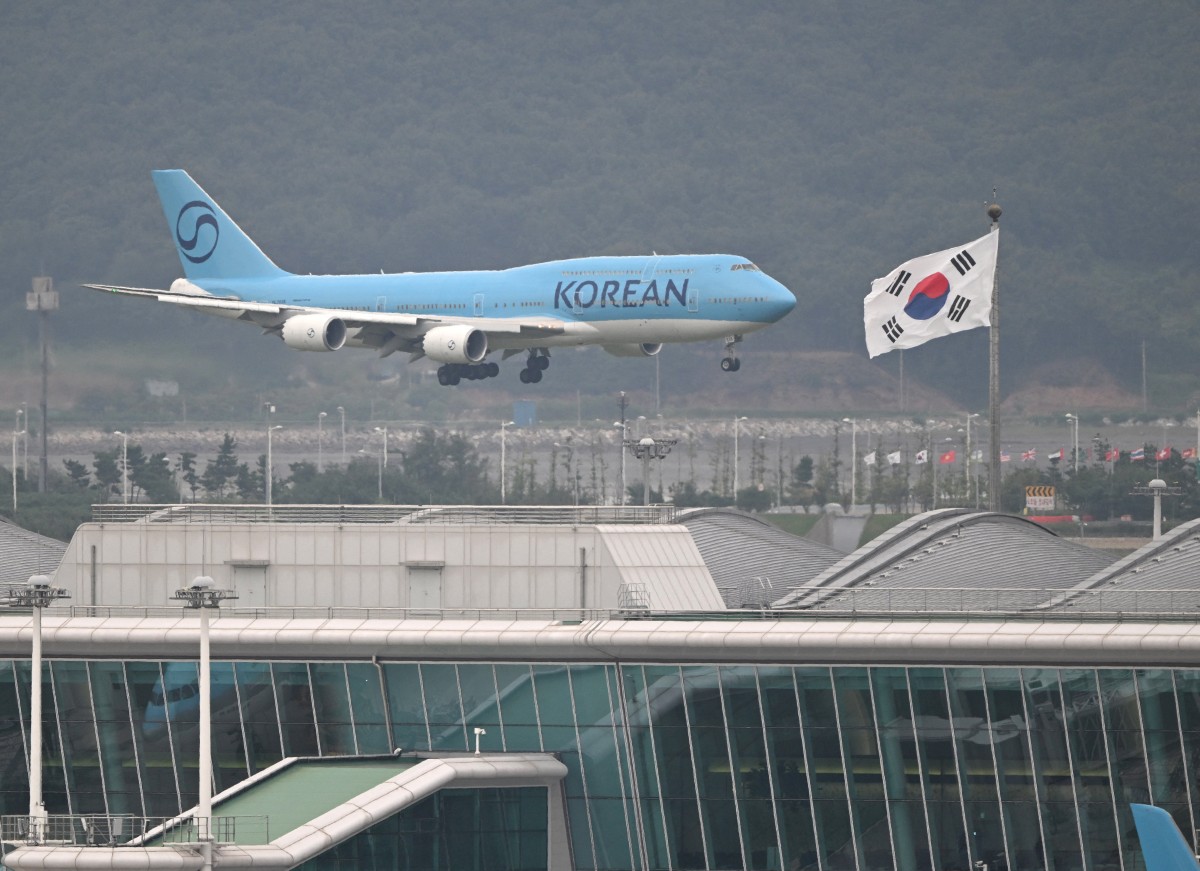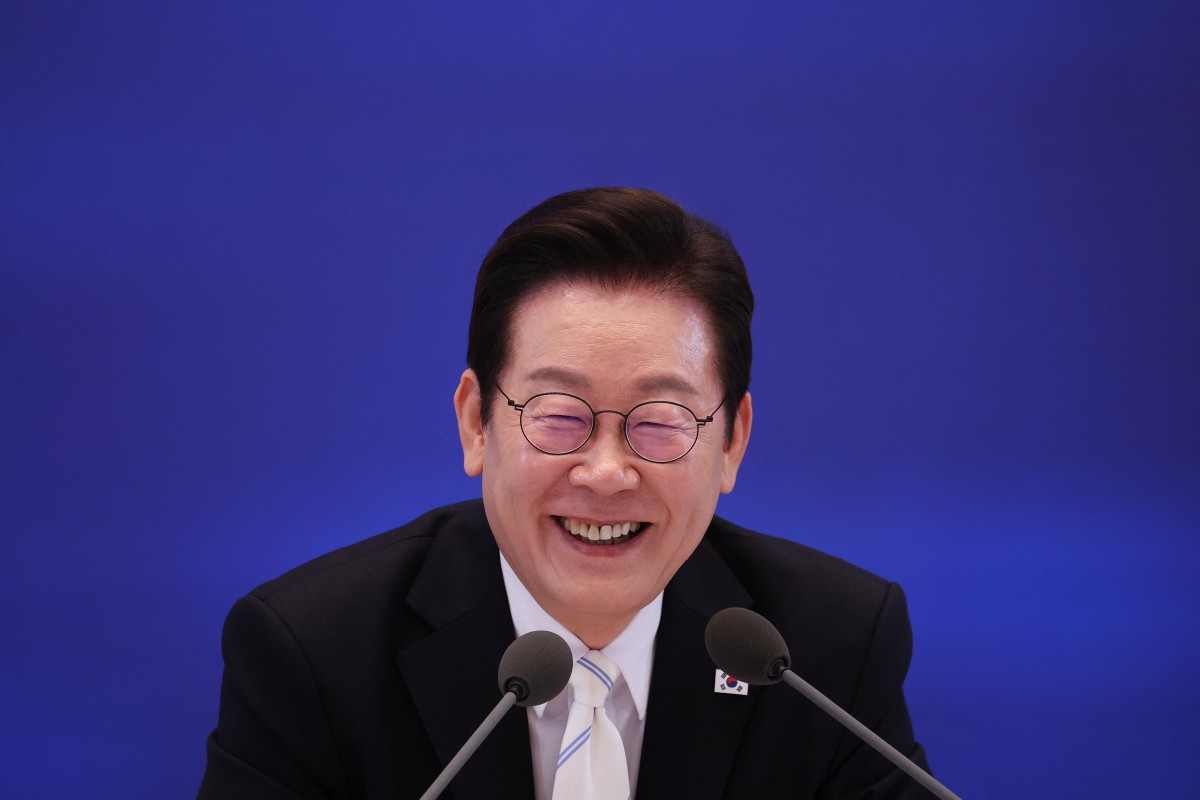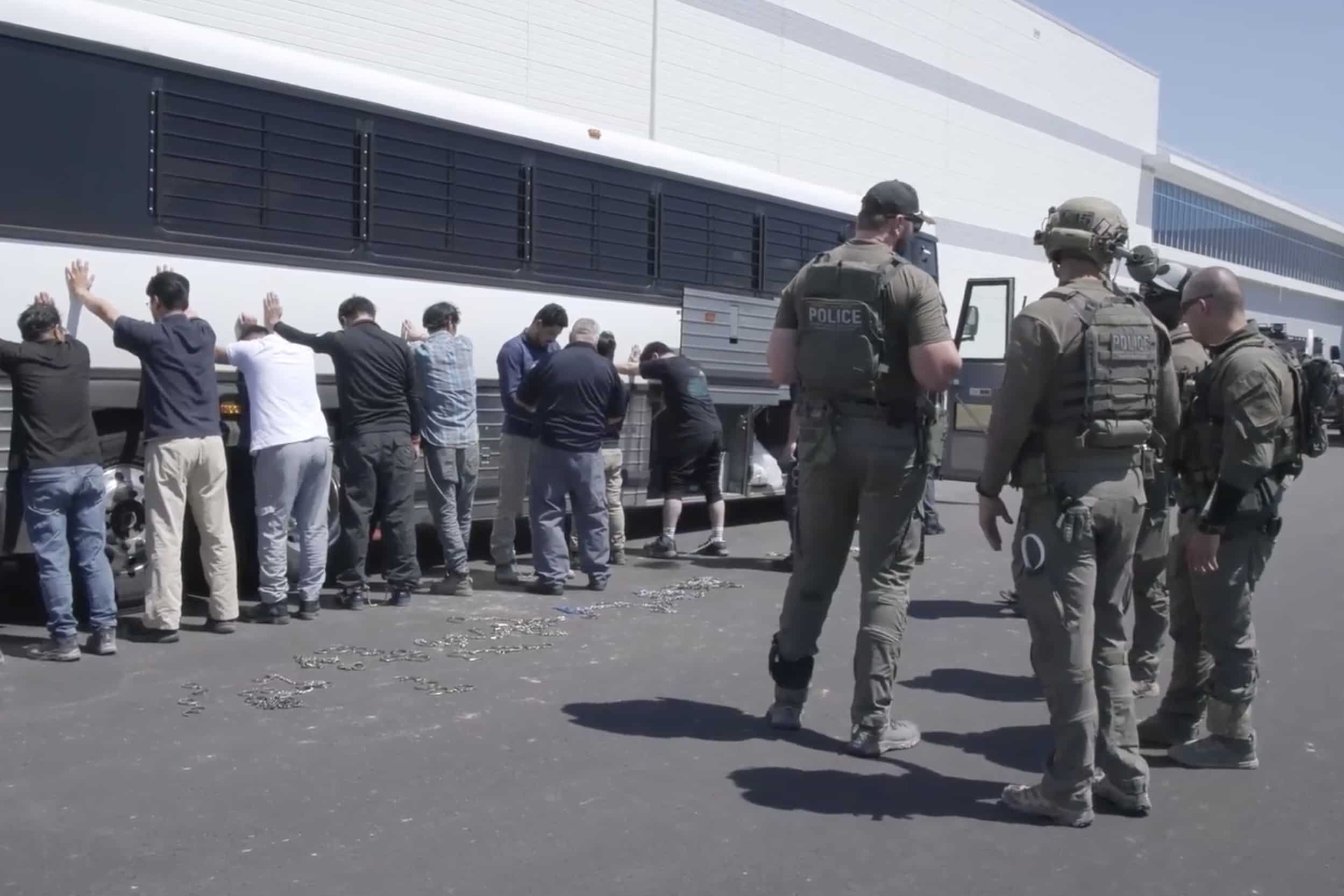
Hundreds of South Korean workers detained in a US immigration sweep last week have returned home on a chartered plane, ending a weeklong ordeal in an episode that has raised doubts about Korean investment and strained ties between the two allies.
A Korean Air Lines Co jet carrying 330 people — 316 of them South Koreans — touched down at Incheon International Airport on Friday to a rousing welcome from anxious families. The hall buzzed like a red-carpet premiere, with camera crews packed shoulder to shoulder and lenses fixed on the doors. Outside, more than 10 buses idled in formation, while greeters waved welcome signs. Among the crowd, a six-month-old baby waited for her father — and on the plane, a pregnant woman, according to local media.

The unprecedented raid at a Hyundai Motor Co-LG Energy Solution Ltd battery plant under construction in Georgia has rattled South Korea, where images of shackled workers have circulated widely and fueled public anger, casting a cloud over President Lee Jae Myung’s young presidency. Construction on the plant is being delayed by several months, Hyundai Chief Executive Officer José Muñoz said in an interview Thursday, as disruption spread across the industry.
The Sept 4 raid took place just two weeks after Lee and President Donald Trump held a summit to reaffirm their economic and security ties. Lee said on Thursday the incident could have a significant impact on direct investment into the US as Korean firms grow wary of a potential crackdown.
Lee’s approval rating slipped 5 percentage points from a week earlier to 58 percent, according to the latest Gallup Korea poll released Friday, with diplomacy the biggest drag.

The fallout adds to strains from a July trade deal that kept a 15 percent levy on most Korean imports. Trump hasn’t signed an order to lower auto tariffs as pledged, while the two sides remain split over Seoul’s $350 billion investment pledge, a key part of the accord.
With the crackdown putting billions in Korean investment at risk, Commerce Secretary Howard Lutnick told CNBC in an interview that South Korea must accept a trade deal requiring US investment or face tariffs. He added that Trump plans to ease short-term visas for foreign skilled workers needed to build new factories.
“Given Trump is a master at creating leverage, there’s a high chance he’ll try to spin this incident to his advantage — basically saying ‘I’ll give you the visas, so come.’ Lutnick has already said that much,” said Park Won-gon, an international relations professor at Ewha Womans University in Seoul.
READ MORE: US immigration agents arrest hundreds at Hyundai plant, mostly Koreans
Lee will likely try to resist signing a lopsided agreement but “the situation doesn’t look favorable for South Korea,” Park said, pointing to neighbor Japan’s deal.

Korean carmakers are now under significant pressure after President Trump signed an executive order on Sept 4 cutting tariffs on Japanese autos to 15 percent, Morgan Stanley’s Chief Korea Economist Kathleen Oh said in a report this week.
In a sign of an increasing distress, South Korea’s shipments to the US plunged 12 percent in August from a year earlier.
“Remember, security demands haven’t even been brought up yet,” professor Park said. “Honestly I don’t see how South Korea can hold out.”
A woman, whose husband had been in the US for only a few months, waited nervously for the plane to land. She said she had been on edge the entire time and wouldn’t be at ease until she saw his face. She asked not to be identified.


